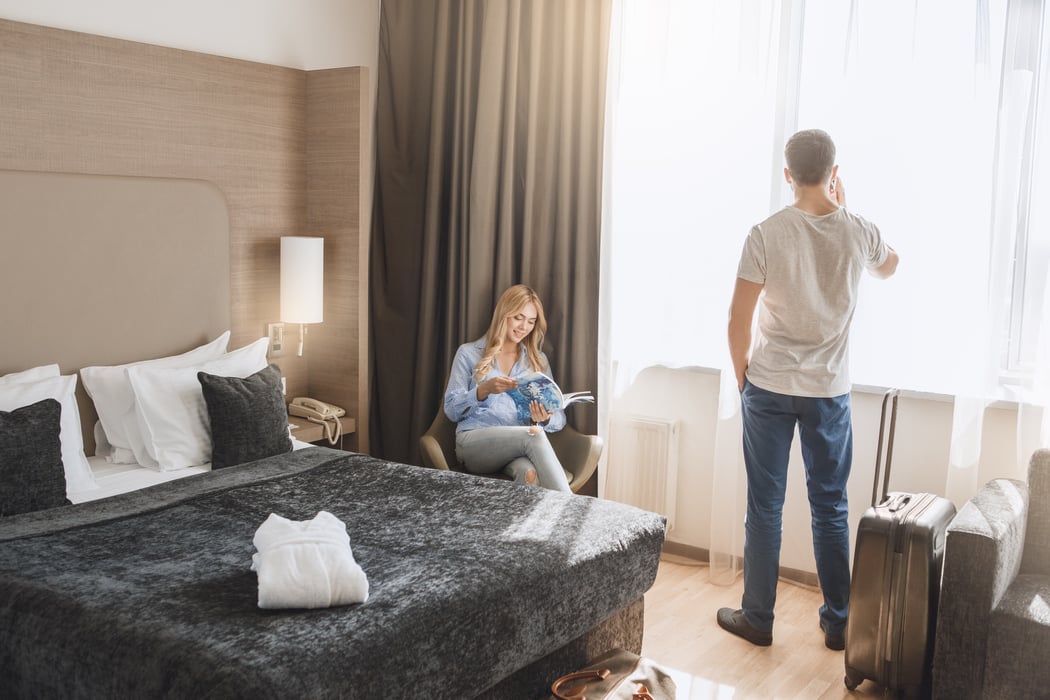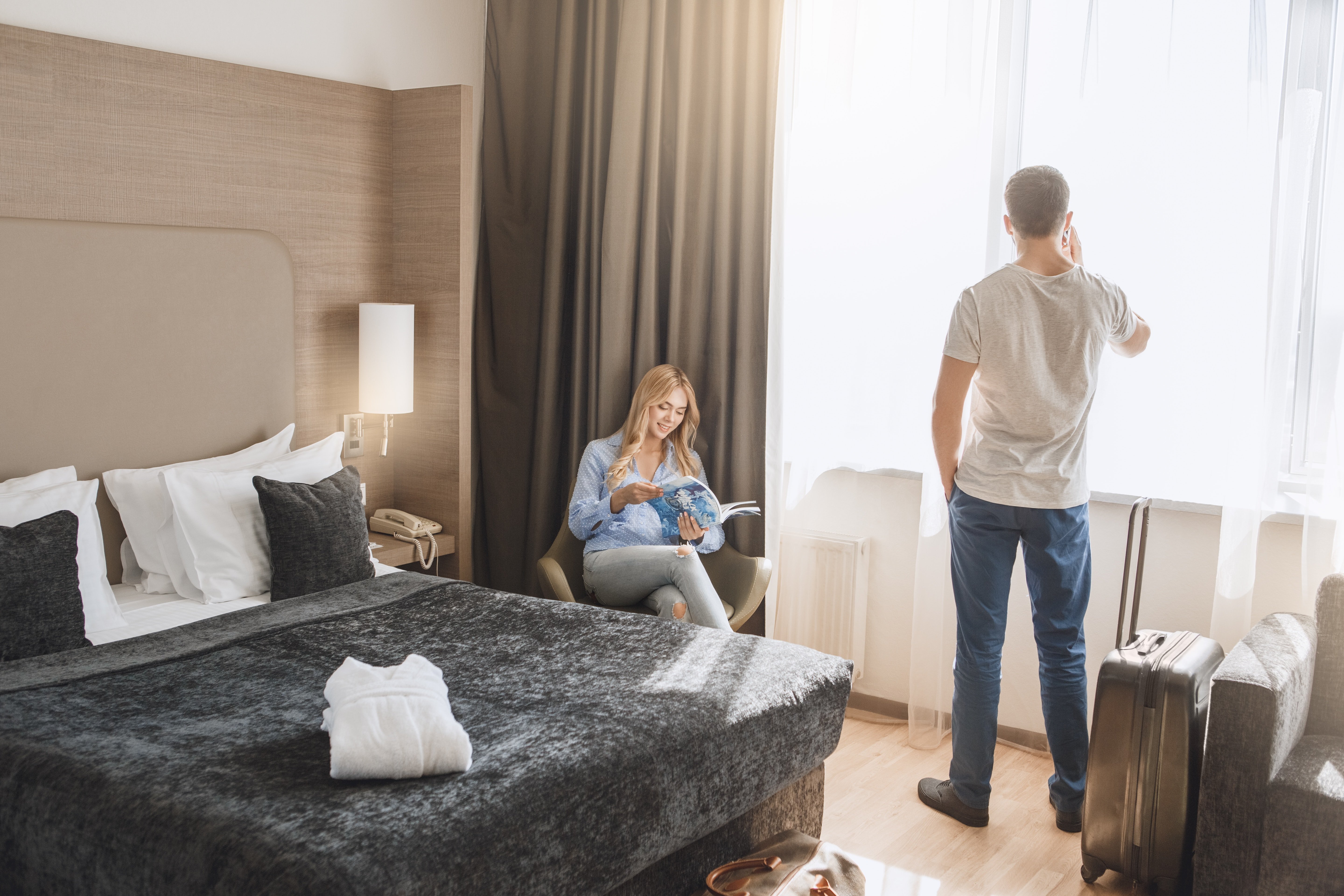A journalist for the New York Times recently wrote a piece about her irritation with smart technology taking over every inch of her hotel experience.
In the article, she discusses a recent trip away, which was soured by the hinderance of technology - technology that did the opposite of what it was supposed to do. Instead of making her experience easier, it left her feeling cold.
She spoke to senior members of the hospitality industry who understandably spoke to her about the positives of adopting smart tech both for hotel staff and guests.
And interestingly, she noted 'young' travellers (under 25) seem to be very much onboard with these developments.
But she does have a point. For years, the phrase 'technology fatigue' has been drifting in and out of our daily vocabulary. With the likes of AI getting so much airtime at the moment, it's clear how fast technology is advancing and this has an impact on every industry. ChatGPT for example, has been causing some to even fear for their jobs (although this fear may be slightly unwarranted for now).
The point of all of this is to approach all smart technology wisely. Research and use everything at your disposal - but remember this: all the technology you use should enhance guest experience and make time for your staff to make a guest's stay even more warm, and even more personable. Don't remove the human in your hotel's equation. Smart tech shouldn't replace staff!
Always be aware of the balance between the tech you use and face to face service. Be smart about your smart tech.
What are some current hotel technology trends?
According to Hospitality Technology's 2023 Lodging Technology Study, the majority of hotels already offer, or are planning to introduce, mobile booking, mobile check-in and mobile room keys (100% of participants), two-way messaging with guests (95%), contactless payments (88%), check-in and check-out kiosks (62%) and voice-controlled devices (54%).
The study also found that the average IT budget of hotels globally rose to more than 4% of total revenue in 2022 from less than 3% in 2021, and 74% of hoteliers are now willing to consider using alternative investment metrics for technology projects.
Here are some areas of technology you should consider investing in going forward.
Your booking engine
Your booking engine needs to be easy to navigate in a way that will lead users to convert without them needing to put too much thought into the process. It’s important that it integrates well with all of your other systems (like your PMS, RMS and Channel Manager) and it should work well with your workflows and marketing processes.
An impressive booking engine has to be flexible. This is because it should adapt easily to the growth or development of your products/services and should always display whatever it is you have to offer. What kind of groups does your hotel provide for? Perhaps you are a hotel venue, perhaps you tend to get a lot of corporate bookings. Your booking engine should have a variety of modules.
And you don’t just want it to display the basics – your rates and dates are the bare minimum of what should be shown off. Your booking engine should allow for lots of visual support to these rates and dates. Visuals are what will help get your room over the line and get it sold to your guest. Make sure your booking engine also gives you the option to integrate sales conversion tools as they will help maximize the number of website visitors turning into buyers.
It also needs to be mobile-optimised. Mobile accounts for approximately half of web traffic worldwide. Its presence in revenue reports is only growing all the time as people get more and more comfortable with browsing and actually buying or booking on mobile. According to our mobile stats from Q1 2023, 77% of our clients' website visits were via mobile, and 60% of bookings were made via mobile.
Accompanying systems
Your booking engine might be the heart of your tech stack, but like a human body, you need more than that to properly function. Ideally your booking engine is accompanied by your PMS, RMS and Channel Manager. When you’re going about picking each of these systems, work on the basis of finding the best of each.
A Property Management System is a system that should help you manage multiple aspects of your property. A Channel Manager is a system that sends your property availability to multiple channels, and keeps all the information in clear and correct between channels.
You should be able to sit down with your PMS provider to discuss and agree on rate strategies and business logics before you set up rate plans and connect to your channel manager. Your booking engine should connect directly to your PMS or your channel manager should be flexible enough to easily adjust rate mapping.
Automation and personalisation are words that have been thrown around for a long time now, but they’re key concepts going forward within the hospitality industry. If you can automate as many tasks as possible for your front desk staff, it frees up more room for them to provide a personal and attentive experience with your guests – a win win. Your technology should aid you in this. In relation to personalisation, people appreciate a personal touch. They always have – but now more than ever.
With the right technology in relation to your email marketing efforts for example, you will be able to segment your contacts and nurture relationships in a more personal way, which just gives your guests the impression you’re not only on the ball but you care about their needs too. Email is also a great way to organise your guest data and put it to good use, something that is becoming more difficult since the recent change in relation to cookieless tracking.
Smart technology
What does smart tech mean in practise? It could mean giving guests control over certain things by using their mobiles, like check in/check out, the lighting and temperature in their rooms. As well as saving energy costs, it makes things so much easier for everyone.
Utilising mobile as much as you can is also a smart decision given the huge growth we have seen and will continue to see in mobile.
Just remember our earlier warning - be smart about your smart tech!
Google Hotel Ads
Google Hotel Ads is a meta-search platform which displays your hotel rates in direct comparison to OTAs, enabling you to showcase your hotel on Google across multiple devices.
Using Google Hotel Ads will result in an increase in your direct traffic and revenue. It will also allow you to own your guest data while sustaining a future relationship with guests – like we mentioned earlier, owning guest data is crucial to building loyalty.
Chatbots
Chatbots are great for convenience – for you and also for your guests. They absolutely have a place as part of your communication strategy - when used correctly.
Whether it’s addressing queries immediately from customers in different time zones or answering a regular query you find you receive quite a lot, they can do the groundwork with a customer, but make sure guests are then able to access a staff member at a later stage if necessary, depending on whatever the query was.
In regards to ChatGPT, its benefits include:
- Idea generation
- Customer service
- Data processing
- Marketing
ChatGPT can help to craft blog posts, social media copy, emails, and video scripts. For hotels, you should also consider using AI-generated replies for online reviews if you are struggling to dedicate time to this - it's so important you respond to all your reviews.
Read more about ChatGPT and how to use it as a hotelier here.
Meta chief executive Mark Zuckerberg has also announced the launch of Llama 2, in partnership with Microsoft, which is the next generation of its AI large language model and (unlike ChatGPT and Google's Bard) has been released for free, for research and commercial use.







